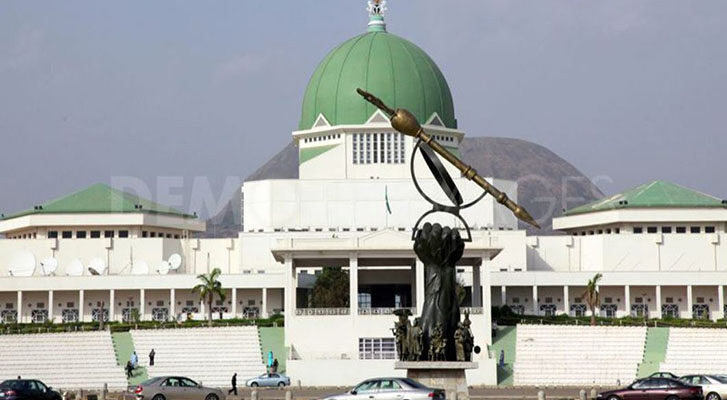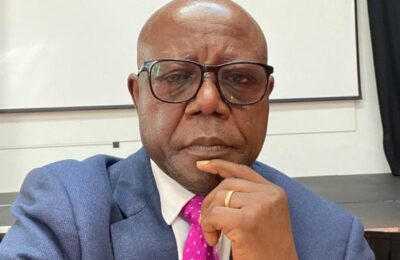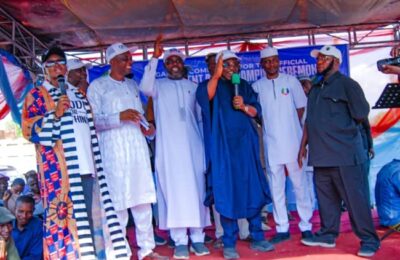Power rotation, or zoning, ensures equitable distribution of leadership roles among communities, regions or groups thus promoting fairness, inclusivity, and stability. It fosters political equity, prevents monopolization of power, and strengthens democracy by reflecting the diversity of a constituency.
In Yagba Federal Constituency, comprising Yagba East, Yagba West, and Mopamuro, power rotation has been very crucial in fostering unity, political harmony, and balanced development. Rotational leadership ensures equitable representation for all LGAs, prevents domination by any single group, and addresses local developmental needs effectively. It also promotes peace, unity and good brotherliness. While Nigeria’s 1999 Constitution does not explicitly mandate power rotation, it emphasizes inclusivity and federal character. Section 14(3) of the Constitution calls for equitable representation in government to ensure fairness and prevent the dominance of any group. This principle forms the basis for zoning arrangements and underscores the importance of power rotation as a mechanism to achieve these constitutional ideals.
In Yagba Federal Constituency of Kogi State, the principle of power rotation has guided leadership distribution among the three Local Government Areas (LGAs)—Mopamuro, Yagba East, and Yagba West—since 1999. However, an analysis of historical representation reveals significant disparities and lopsidedness particularly in favor of Yagba East and Yagba West, leaving Mopamuro significantly underrepresented.
As the 2027 elections approach, it is imperative for the major political stakeholders of Yagba to meet, discuss and agree on the need to concede the next slot of Yagba Federal Constituency to Mopamuro and particularly to the Amuro axis, in the interest of justice, equity, and fair play. Here below is the historical analysis of the chronological representation in Yagba Federal Constituency from 1999 – 2027:
a. 1999–2003 : Hon. Olorunshola Ojo (Mopamuro). During this period, Mopamuro held the seat for 4 years, marking its only representation in the Yagba Federal Constituency’s democratic history from 1999.
b. 2003–2007: Hon. Joseph Tolorunju Faniyi (Yagba East). At this time, Yagba East took over for 4 years, making its first tenure in the Constituency’s leadership since 1999.
c. 2007–2011: In this period, Hon. Samuel Bamidele Aro of Yagba West took over the leadership of the Constituency for its first 4 years’ tenure since 1999.
d. 2011–2019: Hon. Steve Sunday Karimi of Yagba West retained the seat for an additional 8 years, completing a total of 12 years of lrepresentation.
e. 2019–2027:*By 2027, Hon Leke Abejide of Yagba East would have completed 8 years of representation for Yagba Federal Constituency. This period added to the tenure of Hon T. J. Faniyi amounts to 12 Years of representation by Yagba East from 1999.
The Summary of Representation of Yagba Federal Constituency from 1999–2027 is as follows:
a. Mopamuro : 4 years (1999–2003).
b. Yagba East: 12 years (2003–2007 and 2019–2027).
c. Yagba West: 12 years (2007–2011 and 2011–2019).
From the above analysis, it is evident that Mopamuro, with only 4 years of representation, is the most underrepresented LGA in Yagba Federal Constituency as of today since 1999. Therefore, it is only natural that the next slot for Yagba Federal Constituency be zoned to Mopamuro and by extension, to Amuro axis. In making a case for Mopamuro in 2027, we must be guided by the following facts:
a. Equity and Fairness. Mopamuro’s marginalization is apparent when compared to the 12 years each for Yagba East and Yagba West. To restore balance and uphold justice, it is imperative that Mopamuro takes the next slot in 2027.
b. Amuro Axis Representation Within Mopamuro, the Amuro axis has never had the opportunity to represent the Constituency. Granting this slot to Amuro would ensure inclusivity and address all misgivings about Yagba Federal Constituency representation.
c. Developmental Imperatives. Representation by Mopamuro, particularly Amuro, offers a chance to address the specific developmental challenges facing the Local Government Area. Hence, equitable leadership distribution would ensure balanced progress across all LGAs in Yagba land.
In view of the above analysis, the good people of Mopamuro, both at home and abroad, are therefore making a passionate appeal to political leaders, parties, and stakeholders in Kogi State to ensure that:
a. The 2027 slot is zoned to Mopamuro, in line with the principles of equity, justice and fair play and that the Amuro axis is specifically considered, as it has never held this position before.
b. A passionate and humble appeal is hereby made to the Executive Governor of Kogi State to please respect and honour the on-the-ground power rotation arrangement in Yagba in selecting and supporting candidates for the next Yagba Federal Constituency election.
c. We urge political parties and their leaders to prioritize the common good of Yagba Federal Constituency by supporting Amuro candidates for the next election for Yagba Federal Constituency.
In conclusion, power rotation is not just a political convenience but a moral imperative for fostering unity, equity, and sustainable development in Yagba Federal Constituency. With Yagba East and Yagba West completing their 12 years of representation by 2027, it is only fair and just for Mopamuro to take the next leadership slot. Specifically, the Amuro axis should be given the opportunity to produce the next representative to the Yagba Federal Constituency.
The stakeholders’ cooperation in upholding this principle will not only strengthen political harmony but also set a standard for fair representation in the Yagba Federal Constituency now and in the years to come.
– Commodore Folusho Daniel (Rtd) writes from Orokere Amuro, Kogi State.




